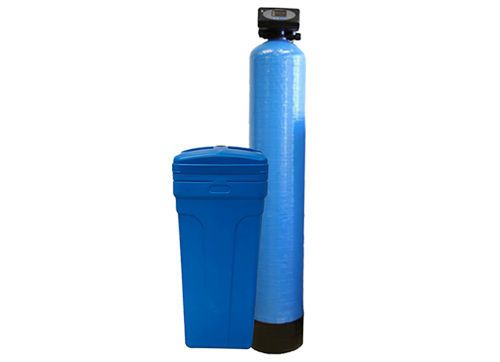Water is essential in our daily lives, from drinking and cooking to cleaning and industrial purposes. However, one common problem many people face is water scaling. This happens when minerals in the water, like calcium and magnesium, form a hard, crusty layer on pipes, appliances, and equipment. Over time, this can cause damage, reduce efficiency, and lead to costly repairs. To tackle this problem, many people and industries turn to anti-scaling water systems.
In this blog, we will explore what anti-scaling water systems are, how they work, and why they are important. By the end, you’ll have a clear understanding of how these systems can help protect your home or business from the damaging effects of scaling.
What is Water Scaling?
Water scaling occurs when minerals in hard water, particularly calcium and magnesium, are left behind as water evaporates or moves through pipes and equipment. Over time, these minerals build up and create a hard, white, or yellowish layer. You might have noticed it on your showerhead, faucets, or even inside your kettle. While it may seem harmless at first, scale can cause a number of issues if left untreated.
Some common problems caused by water scaling include:
Reduced water flow: Scale builds up inside pipes, which makes them narrower and reduces water pressure.
Increased energy consumption: Appliances like water heaters have to work harder when covered in scale, using more energy to heat water.
Shortened lifespan of appliances: Scale can cause wear and tear on appliances, leading to expensive repairs or the need for replacements.
Unpleasant appearance: The white, crusty deposits can be unsightly and difficult to clean.
How Do Anti-Scaling Water Systems Work?
Anti-scaling water systems are designed to prevent or reduce the buildup of scale. They achieve this by changing the way the minerals in hard water behave, making them less likely to stick to surfaces. There are various types of anti-scaling water systems available, each using different methods to solve the problem. Let’s explore a few of the most popular choices in more detail:
1. Salt-Based Water Softeners
This is one of the most traditional types of anti-scaling water systems. A salt-based water softener replaces calcium and magnesium ions with sodium or potassium ions. By doing this, the minerals that cause scaling are effectively removed from the water, preventing scale buildup. However, this system requires regular maintenance, such as adding salt, and it can also increase the sodium content of the water.
2. Salt-Free Water Conditioners
Unlike salt-based systems, salt-free water conditioners do not remove the minerals from the water. Instead, they use a process called Template Assisted Crystallization (TAC) to change the structure of the minerals, making them less likely to form scale. These systems are easier to maintain because they don’t require salt or chemicals, and they preserve the natural minerals in the water, making it a more environmentally friendly option.
3. Magnetic and Electronic Anti-Scaling Systems
These systems use electromagnetic fields to alter the behavior of the minerals in the water. By passing water through a magnetic field, the minerals are prevented from sticking to surfaces, thus reducing the formation of scale. Magnetic and electronic systems are often used in both residential and industrial settings because they are easy to install and maintain.
4. Reverse Osmosis Systems
Reverse osmosis is another type of anti-scaling water system that works by forcing water through a semipermeable membrane, filtering out the minerals that cause scale. While reverse osmosis is effective at removing a wide range of contaminants, including calcium and magnesium, it can be more expensive and requires regular maintenance to keep the system running smoothly.
Benefits of Using an Anti-Scaling Water System
Using an anti-scaling water system comes with many benefits, not only for your home but also for your appliances and the environment. Let’s look at some key advantages:
1. Prolongs the Life of Appliances
By preventing scale buildup, an anti-scaling water system can extend the life of your appliances, such as water heaters, dishwashers, and washing machines. This results in reduced maintenance and replacement costs, ultimately saving you money over time.
2. Reduces Energy Consumption
Scale buildup makes it harder for appliances to function efficiently. For example, a water heater with scale will take longer to heat water, which leads to higher energy bills. By using an anti-scaling water system, your appliances will work more efficiently, saving you both energy and money.
3. Improves Water Flow
When scale accumulates inside pipes, it restricts water flow, causing low water pressure. An anti-scaling water system helps to keep your pipes free from scale, ensuring better water pressure throughout your home or business.
4. Eco-Friendly Option
Certain anti-scaling water systems, such as salt-free conditioners, are more environmentally friendly. They don’t require chemicals, salt, or excessive water usage, making them a great choice for those looking to reduce their environmental impact.
5. Easier Cleaning
Scale can leave behind stubborn, unsightly stains on faucets, showerheads, and other surfaces. With an anti-scaling water system, you’ll spend less time scrubbing away mineral deposits, keeping your home cleaner with less effort.
Conclusion
Water scaling is a common problem that can affect your home, appliances, and water quality. Fortunately, anti-scaling water systems provide an effective solution by preventing scale buildup and preserving the efficiency of your plumbing and appliances. Whether you choose a salt-based softener, a salt-free conditioner, or a magnetic system, an anti-scaling water system can save you time, money, and effort in the long run.








